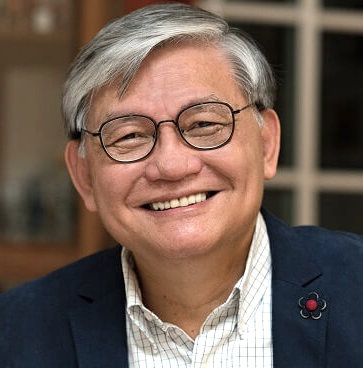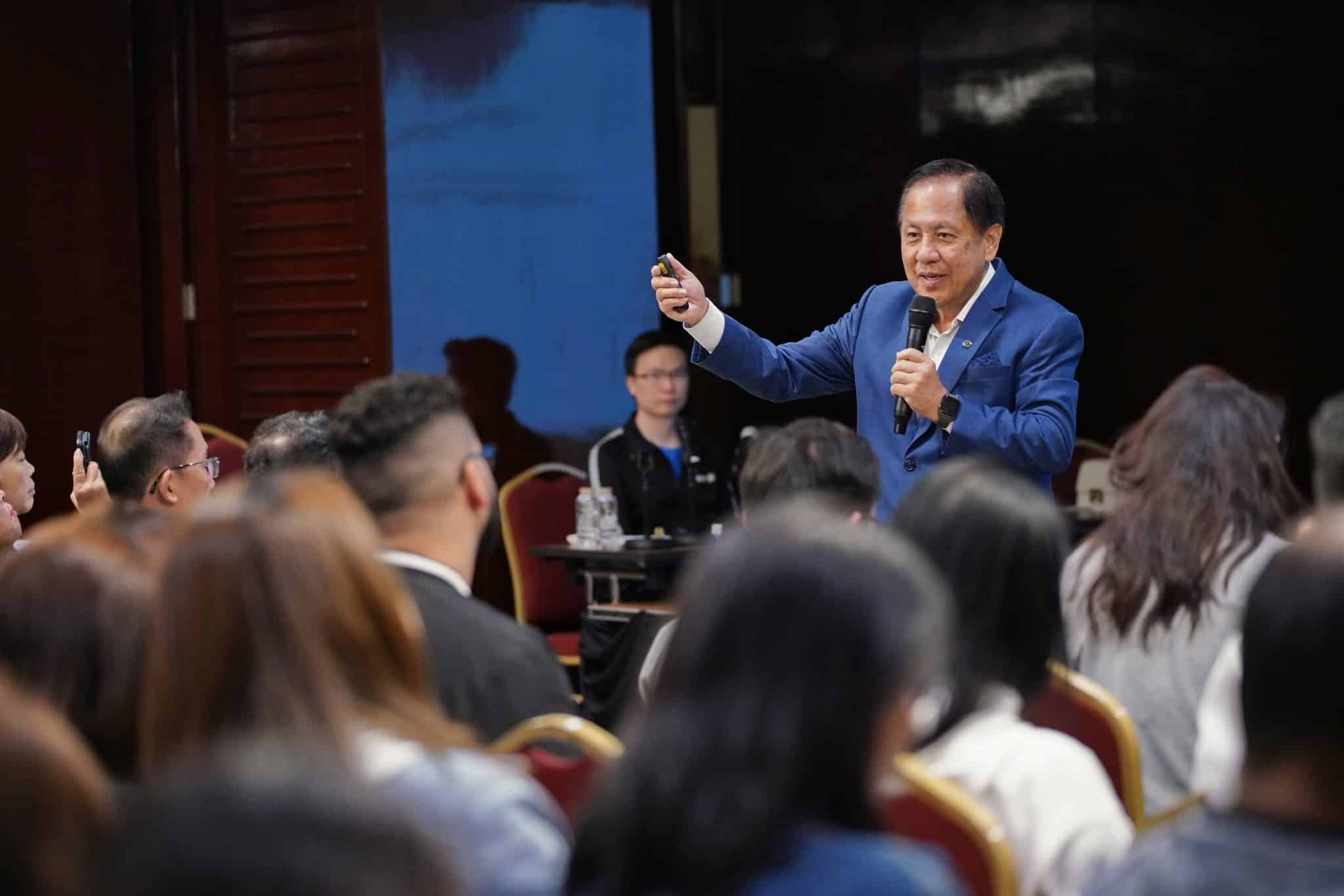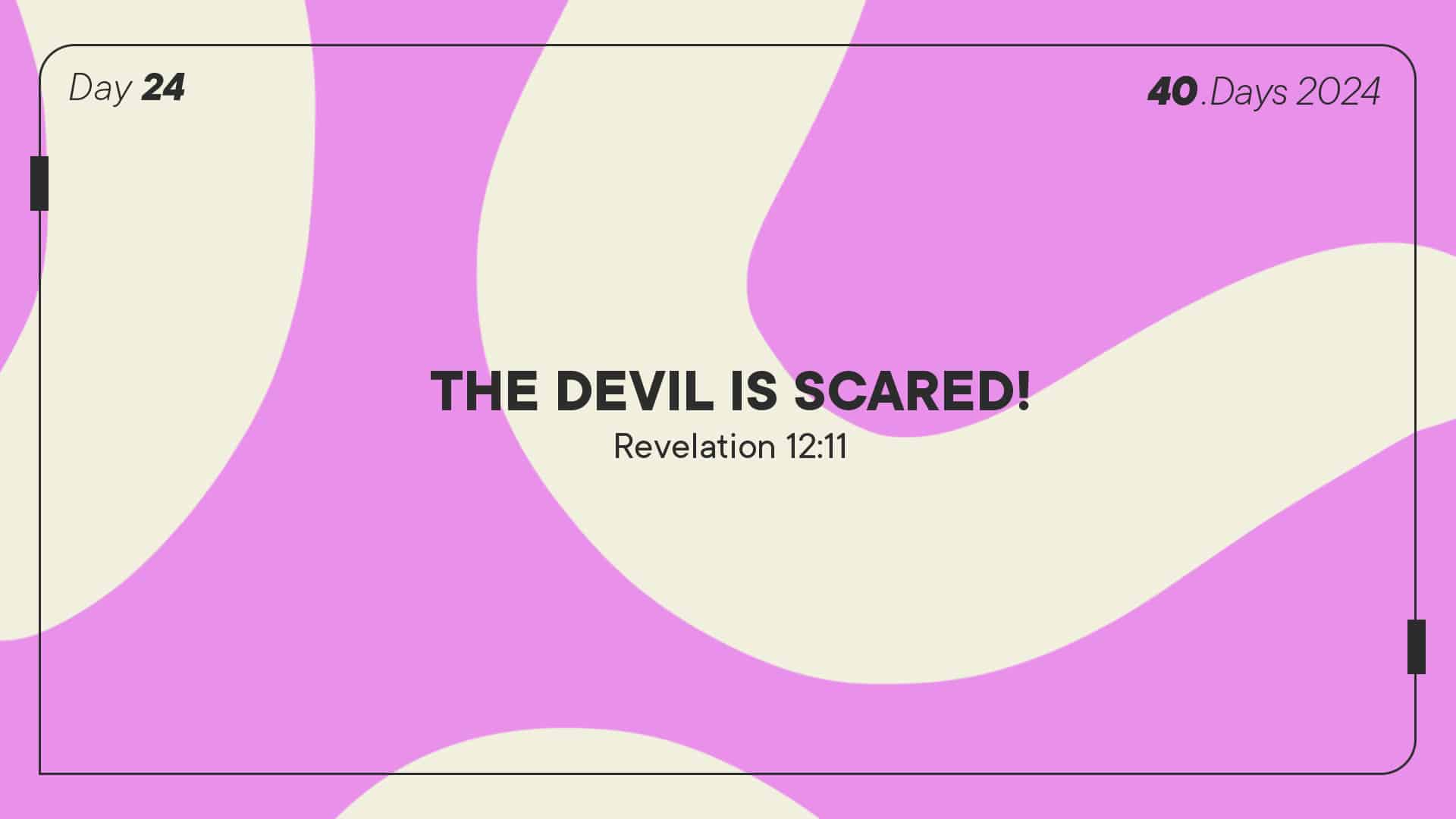The question we all face in Marvel Studios’ Shang-Chi & the Legend of the Ten Rings
By Rev Dr Tan Soo Inn // September 20, 2021, 7:35 pm
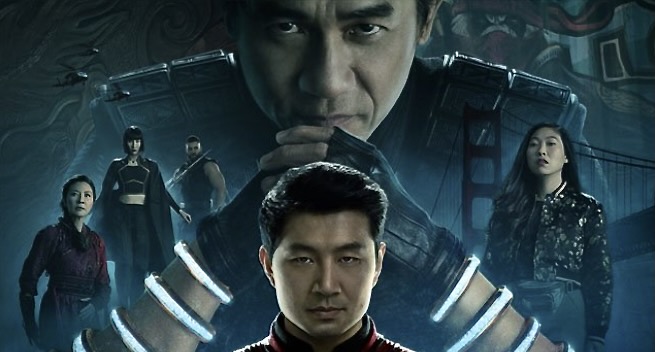
Who are we? "The question of our identity is perhaps the most important one today in a world driven by identity politics," says Rev Dr Tan Soo Inn.
Warning: Spoilers ahead for those who have not watched the Marvel Studios’ movie.
As someone who had read the Shang-Chi comics, I wondered how much the 2021 Marvel Studios’ movie, Shang-Chi and the Legend of the Ten Rings, would keep to the story line from the comics.
Shang-Chi in the comics
Filial piety is a key tenet in Confucianism. Therefore disobeying your parents is a great sin and the greatest sin of all is causing your parent’s death.
This was a key theme of Marvel’s Shang-Chi comics. When Shang-Chi discovered that his father Fu Manchu was evil, he did all he could to thwart his father’s schemes. In a final confrontation, Fu Manchu dies in a crumbling building but Shang-Chi chooses not to save him and Fu Manchu dies (Master of Kung Fu #118, November 1982).
Here was a story line of the suffocating trauma of guilt even though you did what you thought was right.
His guilt at not saving his father scars Shang-Chi deeply and makes him vulnerable to an attack by a powerful Noh Master who uses Shang-Chi’s guilt against him.
Shang-Chi triumphs in the end and finds some freedom from his guilt. But he leaves his life as a wandering kung fu hero behind him and finds new life as a simple fisherman (Master of Kung Fu #125, June 1983).
Here was a story line of deep pathos that respected the complexity when values and family clash, and of the suffocating trauma of guilt even though you did what you thought was right.
Even though there is some closure at the end of this story line, you leave the last page of the comic with mixed feelings, aware of the complexities of life.
Marvel would bring Shang-Chi back again in the comics but I felt none of the subsequent story lines had the power of this one.
The Marvel movie
Although a large part of the movie dealt with the relationship between Shang-Chi and his father, Wen Wu (I think Marvel lost the rights to the name Fu Manchu at some point), in spirit the movie was a different product.
Among the differences, it had a happy ending much neater and much happier than the comics. And though the movie is titled Shang-Chi, I felt that it is actually Wen Wu’s story that frames the narrative.
But the past has a way of catching up with us.
When the movie begins, we meet Wen Wu. He possesses ten mystical rings that confer on him immortality and great power. He has been around for thousands of years conquering kingdoms at will. Frankly, I think this would have been terribly boring.
The first time anything really catches his attention is when he is bested in combat by Ying Li, the guardian of a mystical village called Ta Lo. (You could say that Wen Wu crash landed on Ying Li.) They fall in love and she shows him another way of life, one based on love and mutual respect, rather than one based on power and conquest. They choose to join their lives and forge a new path together.
But the elders of Ta Lo, aware of Wen Wu’s bloody past, reject him and forbid him from entering the village. Ying Li stands by her man and chooses to leave Ta Lo to be with Wen Wu. They start a new life.
Wen Wu retires his Ten Rings and the life of power and conquest. Ying Li also loses her powers when she leaves Ta Lo. They have two children, Shang-Chi and Xialing. They live as one happy family. Perhaps Wen Wu experiences happiness for the first time in his long life.
But the past has a way of catching up with us.
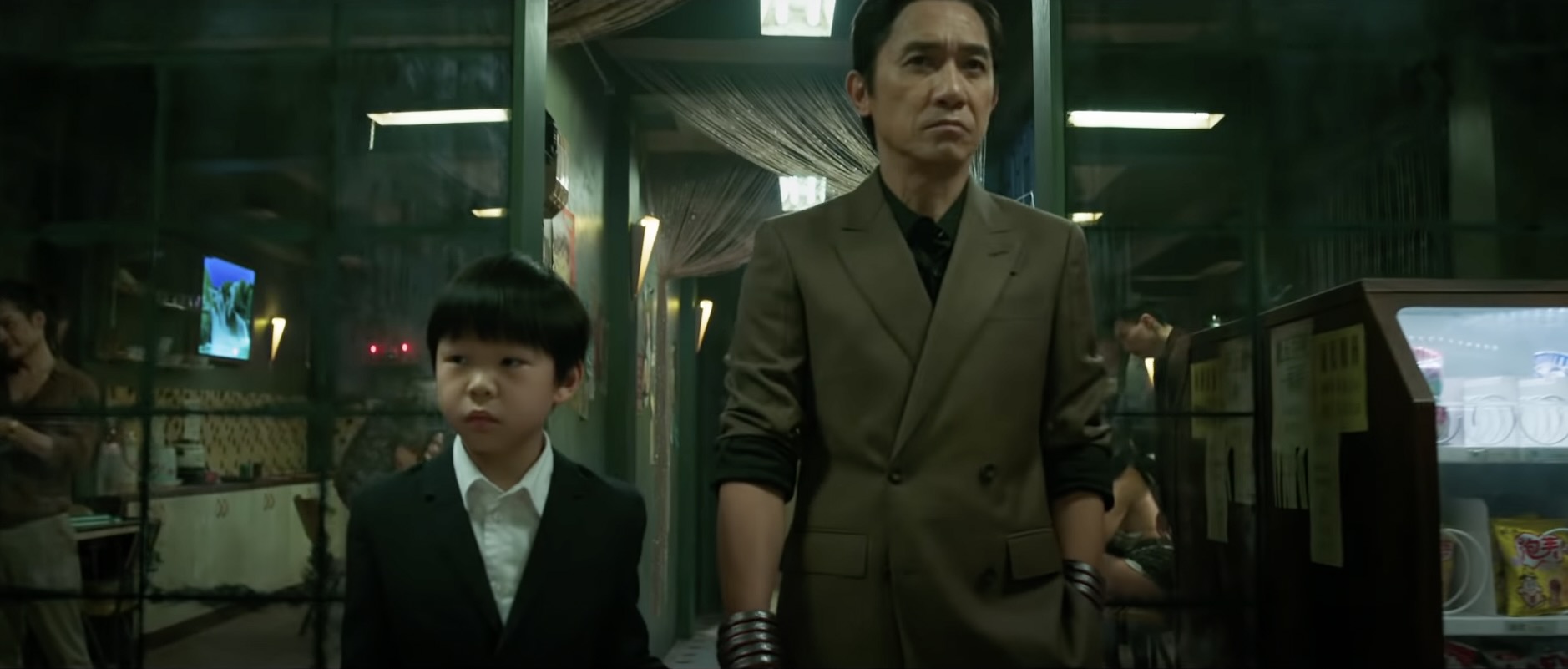
Wen Wu trains his son in kung fu to enlist him in his path of revenge, teaching him that a blood debt must be paid in blood.
One day when Wen Wu is out, his enemies, the Iron Gang, attack his home. They spare the children but kill Ying Li.
Shang-Chi witnesses the death of his mother. When Wen Wu comes back and discovers his wife dead, he goes into a rage. He now has to choose. Does he continue down a path of peace and find peaceful ways to get justice? Perhaps the Iron Gang was also looking for justice for injustices that Wen Wu had inflicted on them in the past.
In any case, Wen Wu chooses the path of vengeance and, to ensure this happens, he puts on the Ten Rings again and goes back to his life of violence. He attacks and kill members of the Iron Gang, taking a young Shang-Chi with him.
He also trains his son in kung fu to enlist him in his path of revenge, teaching him that a blood debt must be paid in blood. He says that he didn’t train Xialing because looking at her reminded him of her mother.
We may be most vulnerable to temptations that appeal to our best instincts and that play on our deepest wounds.
This may be true, but Chinese society is sexist and valued sons over daughters. However Xialing secretly observes her bother’s training and learns on her own. When Shang-Chi is 14, his father sends him to kill the leader of the Iron Gang to complete his revenge on the gang.
Shang-Chi carries out the mission and kills the leader of Iron Gang. But the killing disillusioned him so much he decides that he doesn’t want to be part of his father’s world. We can only speculate at the guilt he felt rejecting his father and his world.
Shang-Chi flees to San Francisco and starts a new life there, adopting the name Shaun. He meets Katy in high school and they become the best of friends.
Ten years later, Wen Wu contacts Shang-Chi and Xialing, who has been hiding in Macau, and says that he knew where they were all along. Now he wants their help to rescue their mother.
Wen Wu says that he has been getting messages from their mother telling him she is not really dead but imprisoned behind a sealed gate by the elders of Ta Lo and that she wants him to rescue her.
We know in the end that the messages were from the soul-consuming Dweller-in-Darkness monster. It is interesting that we may be most vulnerable to temptations that appeal to our best instincts and that play on our deepest wounds.
Fighting Dad
Shang-Chi, Katy and Xialing go ahead to Ta Lo village and discover the truth about the horror of the Dweller-in-Darkness and its wiles.
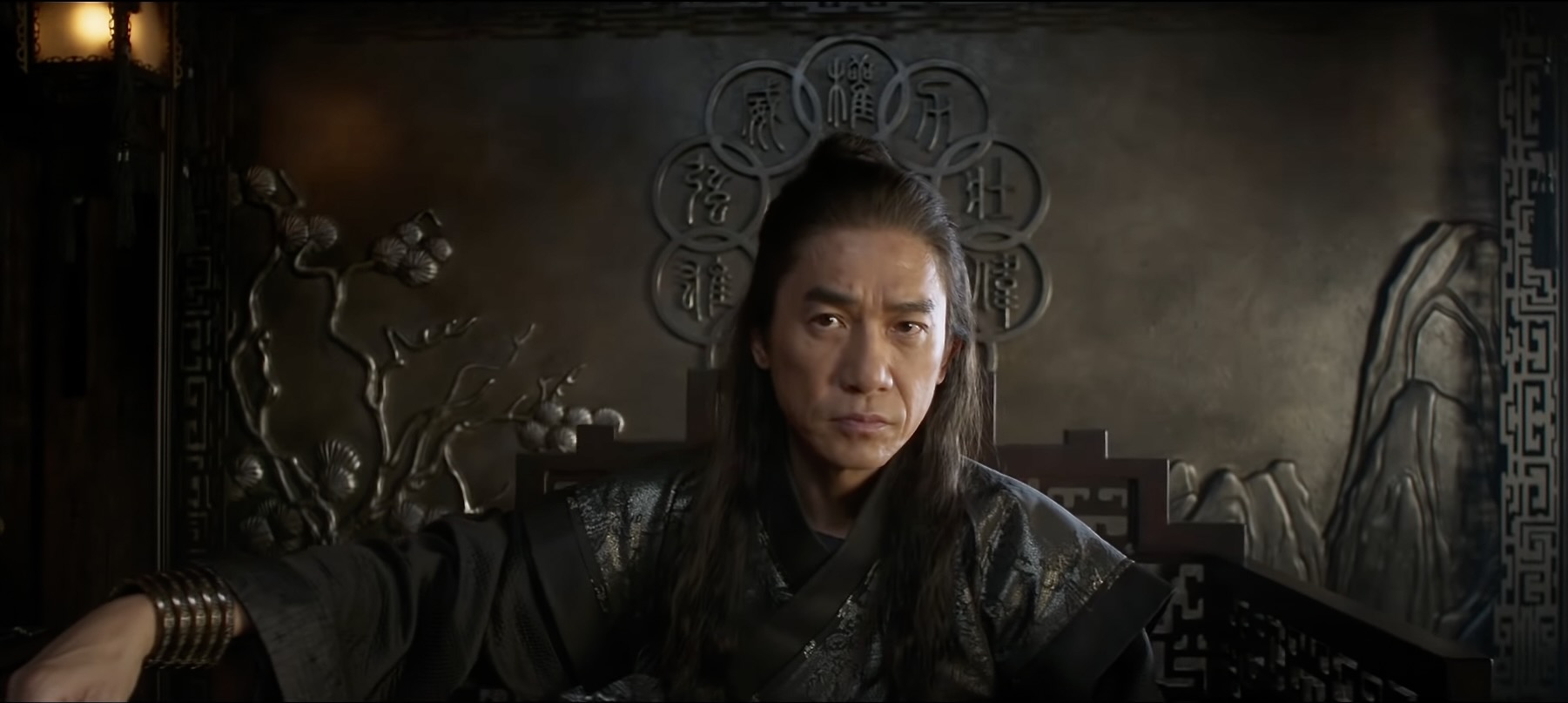
It’s one thing to reject your father. It is quite another to fight your father in what is conceivably a life-or-death contest, as Shang-Chi would discover.
They know that, if Wen Wu were to release the monster thinking he was rescuing his wife, it would unleash the terrible monster into the world.
Shang-Chi then decides to fight his father to prevent this from happening. It’s one thing to reject your father. It is quite another to fight your father in what was conceivably a life-or-death contest.
The existential crisis of such a decision was better brought out in the comics.
In a sequence that compares with the best of the King Kong franchise, we also see two monsters battling to the death, the Dweller-in-Darkness and the Protector Dragon. The Dragon wins in the end but, before that happens, Wen Wu sees the error of his ways.
In a scene reminiscent of the death of Darth Vader, Wen Wu looks down lovingly at his son and bequeaths him the Ten Rings before he perishes. With the rings, Shang Chi, the Dragon and the rest of the fighters defeat the Dweller-in-Darkness.
We don’t know how much time had passed, but in the final scene we see Shang-Chi and Katy back in San Francisco with apparently little psychological damage from all they had gone through. They get back to their high jinks with their friends before they are summoned by the sorcerer, Wong, to prepare for their next appearance in the MCU (Marvel Cinematic Universe).
Shang-Chi’s question
While it is Wen Wu’s story that provides the framework for the movie, it is Shang-Chi who voices the key question of the movie: Who am I?
Katy: Who are you?
Shang-Chi: I’m not who you think I am.
Wen Wu: You can’t outrun who you really are,
Our primary identity shapes who we are and critiques our other identities.
Ying Nan: You are a product of all who came before you.
Shang-Chi: My father trained me to be an assassin, but that’s not who I am.
Shang-Chi: All of the training, all of the sacrifice, no one can hide forever. It’s time to show the world who I really am.
Who are you? Who am I?
Are we defined by our genes? By our past? By our families? By the world? By our wounds? By our failures? By authority figures in our lives?
The question of our identity is perhaps the most important one today in a world driven by identity politics. Are we defined by race? By political affiliation? By nationality? By our vocation? By our denomination?
For followers of Jesus, the answer is clear.
See what great love the Father has lavished on us, that we should be called children of God! And that is what we are! (1 John 3:1, NIV)
Secure in our identity as children of God, we represent Him in a hurting world. This is no fiction. This is real.
Followers of Jesus are children of God. That is our primary identity. Though we may have many secondary identities, it is our primary identity that shapes who we are and that critiques our other identities.
To be a child of God is to reflect the character of Jesus because He is our older brother who models for us what it means to be a child of God and helps us to be like Him (Romans 8:29). I believe a lot of the conflict we have in church comes from the fact that we have allowed secondary identities to become our primary identity.
So an entertaining movie houses a critical question that deserves our attention.
The Covid epidemic has given us a chance to relook at life. This is a God-given time to remember who we are, to repent of false identities or secondary identities that have become primary.
It is a time to remember that we are defined by our loving Abba Father. Secure in that identity, we represent Him in a hurting world. This is no fiction. This is real.
Verdict
Did we enjoy the movie? Yes we did. My wife, Bernice, and I were gifted the tickets to see the movie and we enjoyed ourselves.
It was great entertainment with characters you cared for, great fight scenes between people and between monsters, fantastic CGI, and a story line that carried you along, a story with humour and pathos, and with great theme music to boot.
Tony Leung wins hands down as the commanding presence in the show. He is truly an actor at the top of his game and it was fun watching him in a role where he spoke English and not just Cantonese/Mandarin.
But, as I left the cinema, I couldn’t help but think of the last scene in Master of Kung Fu #125 with Shang-Chi on a fishing boat putting his oar into the sea as he seeks to leave his past and his guilt behind (although there, Shang-Chi looked suspiciously like Bruce Lee and was often painted in strange hues of yellow).
The comics told a better story. But the movie highlighted a more important question.
RELATED STORIES:
We are an independent, non-profit organisation that relies on the generosity of our readers, such as yourself, to continue serving the kingdom. Every dollar donated goes directly back into our editorial coverage.
Would you consider partnering with us in our kingdom work by supporting us financially, either as a one-off donation, or a recurring pledge?
Support Salt&Light